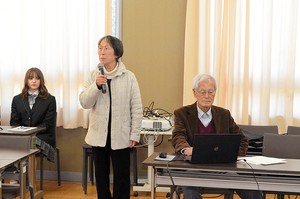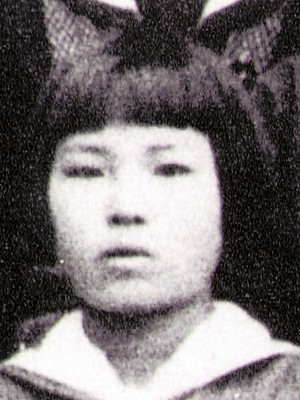THE ASAHI SHIMBUN
March 15, 2022 at 18:30 JST
Japanese companies are scrambling to ensure the safety of their IT engineers in Ukraine, a country so rich in high-tech professionals that it has been called the “Silicon Valley of Eastern Europe.”
Major IT and technology companies, such as Google and Samsung, set up development bases in Ukraine when the country increased its presence as a global IT powerhouse.
Japanese businesses have also established operations there, including Tokyo-based IT company i3DESIGN Co., which has a development base in Kharkiv in northeast Ukraine that employs 15 locally hired system development engineers.
The city has come under heavy bombardment by Russian forces.
Yoichiro Shiba, president of i3DESIGN, has kept in contact with the Ukrainians via a message app. From underground shelters, the engineers have sent Shiba distressing messages, such as “My colleague’s home was destroyed,” or “I just want to survive now.”
The company established the Kharkiv office nine years ago. Shiba said that when he worked with a startup in Ukraine, he was surprised by the high skill level of the IT professionals in the country.
Most of his Ukrainian engineers are now back at work after evacuating from Kharkiv to areas away from the bombing.
However, the company’s mid- or long-term projects could be delayed because of Russia’s invasion.
It’s difficult to predict how the war will unfold, Shiba says, but “the most important thing is to protect the staff members’ jobs and provide reassurances.”
There are also concerns IT professionals will leave Ukraine or fewer overseas companies will invest in the country because of the conflict.
Shiba has decided to act as a bridge between Ukrainian engineers who intend to stay in the country and Japanese companies that want to commission work to them.
“I want to help the IT industry in Ukraine,” he said.
He added that he hopes his assistance will help to revive Ukraine’s economy after the war ends.

Other Japanese companies are helping their employees in Ukraine find safety and offering assistance to others in the country.
Monstarlab Holdings Inc., an IT startup based in Tokyo that offers to digitize client companies’ operations, set up development bases in Ukraine four years ago.
Around 100 staff members have worked at its bases in Kyiv and Lviv, as well as at Monstarlab’s partner company in Ukraine, to develop services aimed at European and U.S. markets.
Monstarlab started drafting a detailed business continuity plan to prepare for an emergency in late January, when Russia was amassing troops along its border with Ukraine.
On Feb. 24, the day Russia started its invasion, Monstarlab implemented the plan.
Its employees in Kyiv moved to Lviv, and some traveled farther and reached Poland. So far, most of the workers have been able to continue working remotely via computers.
The company is helping victims of the war in other ways, too.
It allows evacuees to use its offices in nearby countries, and its employees deliver daily necessities to refugees at the Ukrainian border.

IT SUPERPOWER
The nuclear and aerospace industries in Ukraine soared when it was part of the Soviet Union, and Ukraine’s high-tech prowess has continued since it became an independent country.
Its IT industry was worth around $4.5 billion (531 billion yen) as of 2018, a more than eightfold growth over 10 years, according to the Japan External Trade Organization (JETRO).
IT companies are concentrated mainly in Kyiv, Kharkiv, Lviv and Odessa, and the country has more than 180,000 IT professionals, according to estimates.
Technology schools are scattered around the country, including the Kyiv Polytechnic Institute.
Its rate of technology professionals per capita is higher than the percentages in other European countries.
However, the average salary of Ukrainian technology professionals is only around a quarter of that in the United States.
These factors have made Ukraine an IT superpower in terms of foreign companies’ development bases and in receiving system development work commissioned from companies in the United States and other countries.
Another Japanese company that is operating in Ukraine is Hitachi Ltd. It has established development bases for its subsidiary, GlobalLogic Inc., in five areas of Ukraine.
Hitachi bought GlobalLogic for $9.6 billion in July last year.
GlobalLogic has 24,000 employees in 14 countries, including 7,200 in Ukraine. Part of its operation in Ukraine was disrupted immediately after Russia’s invasion began.
(This article was written by Yasuyuki Onaya, Yoshikatsu Nakajima and Kenji Izawa.)




















A peek through the music industry’s curtain at the producers who harnessed social media to help their idols go global.
A series based on diplomatic documents declassified by Japan’s Foreign Ministry
Here is a collection of first-hand accounts by “hibakusha” atomic bomb survivors.
Cooking experts, chefs and others involved in the field of food introduce their special recipes intertwined with their paths in life.
A series about Japanese-Americans and their memories of World War II